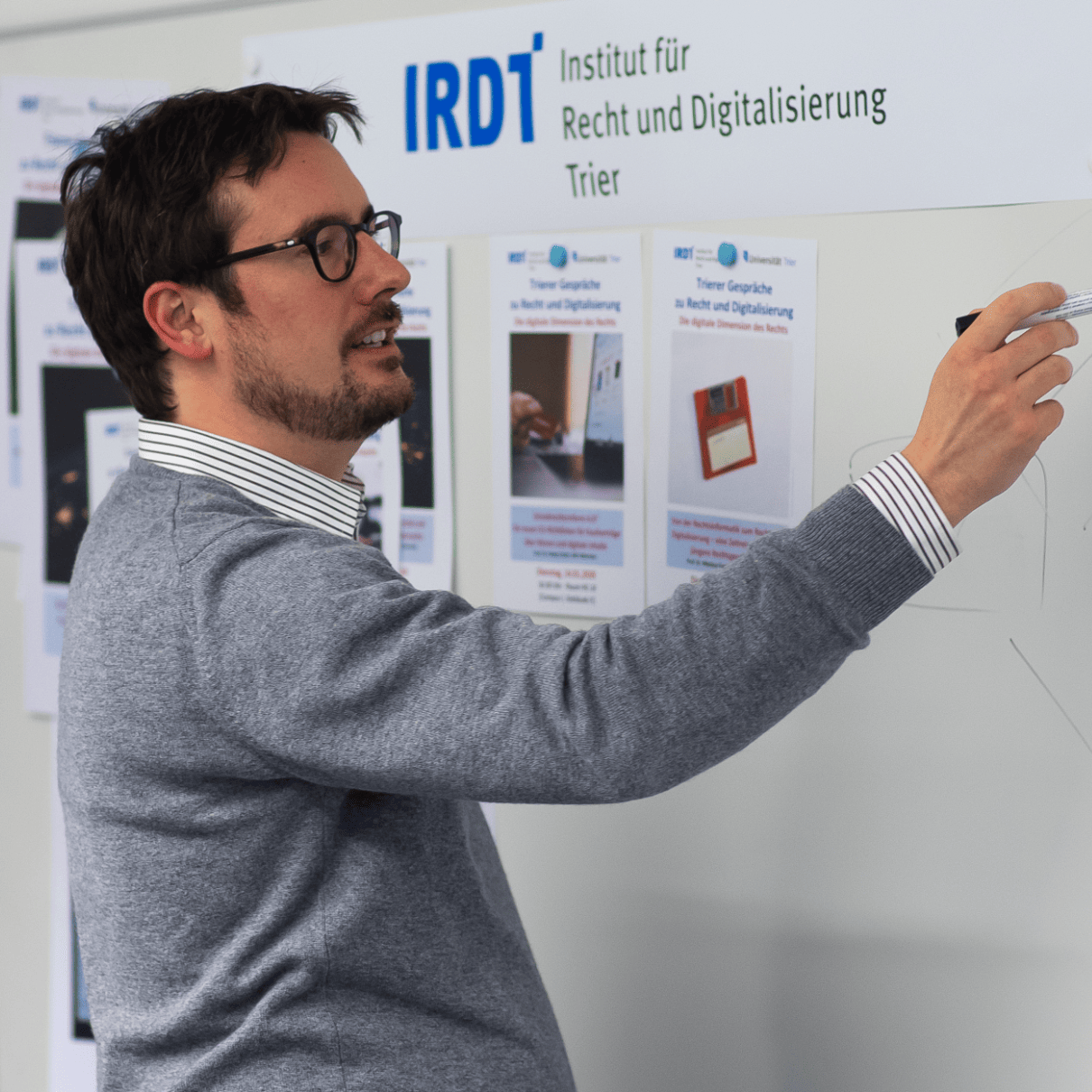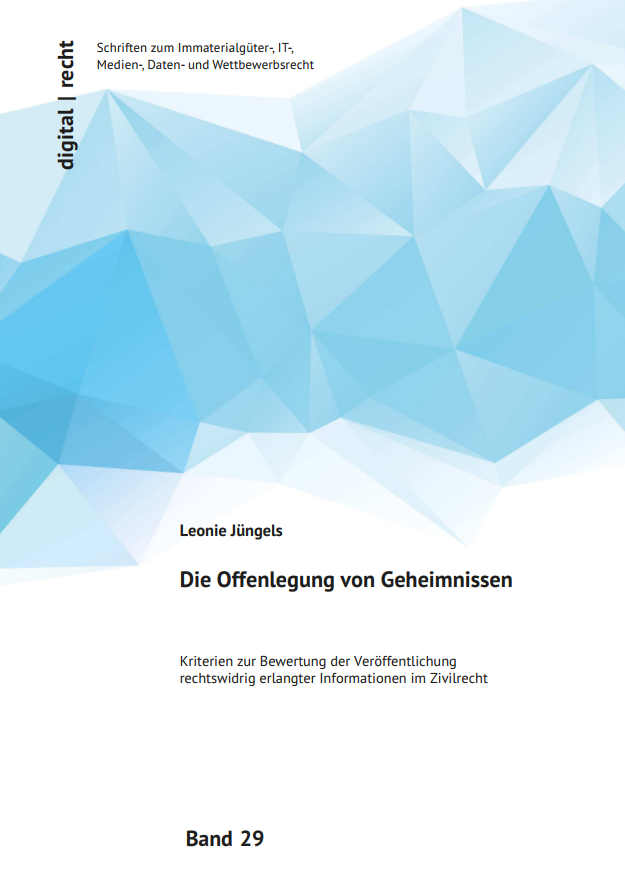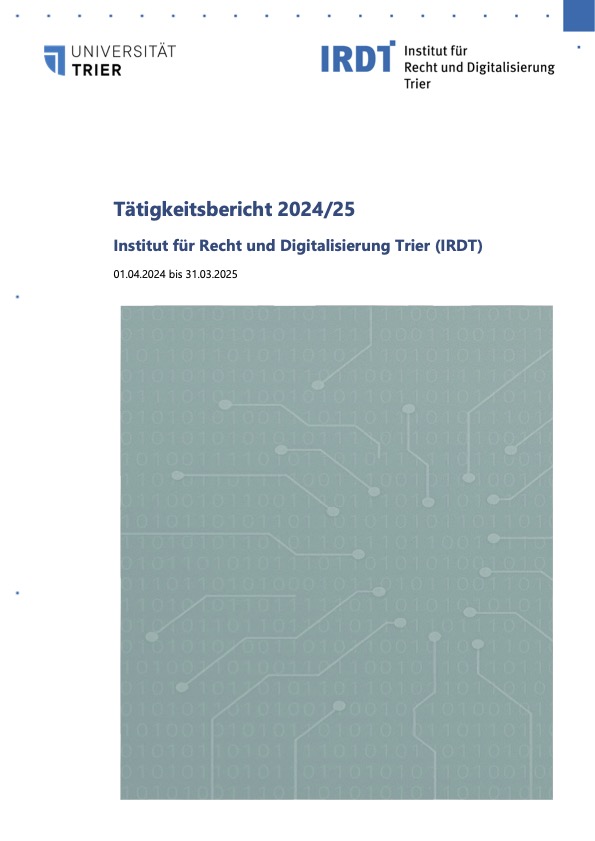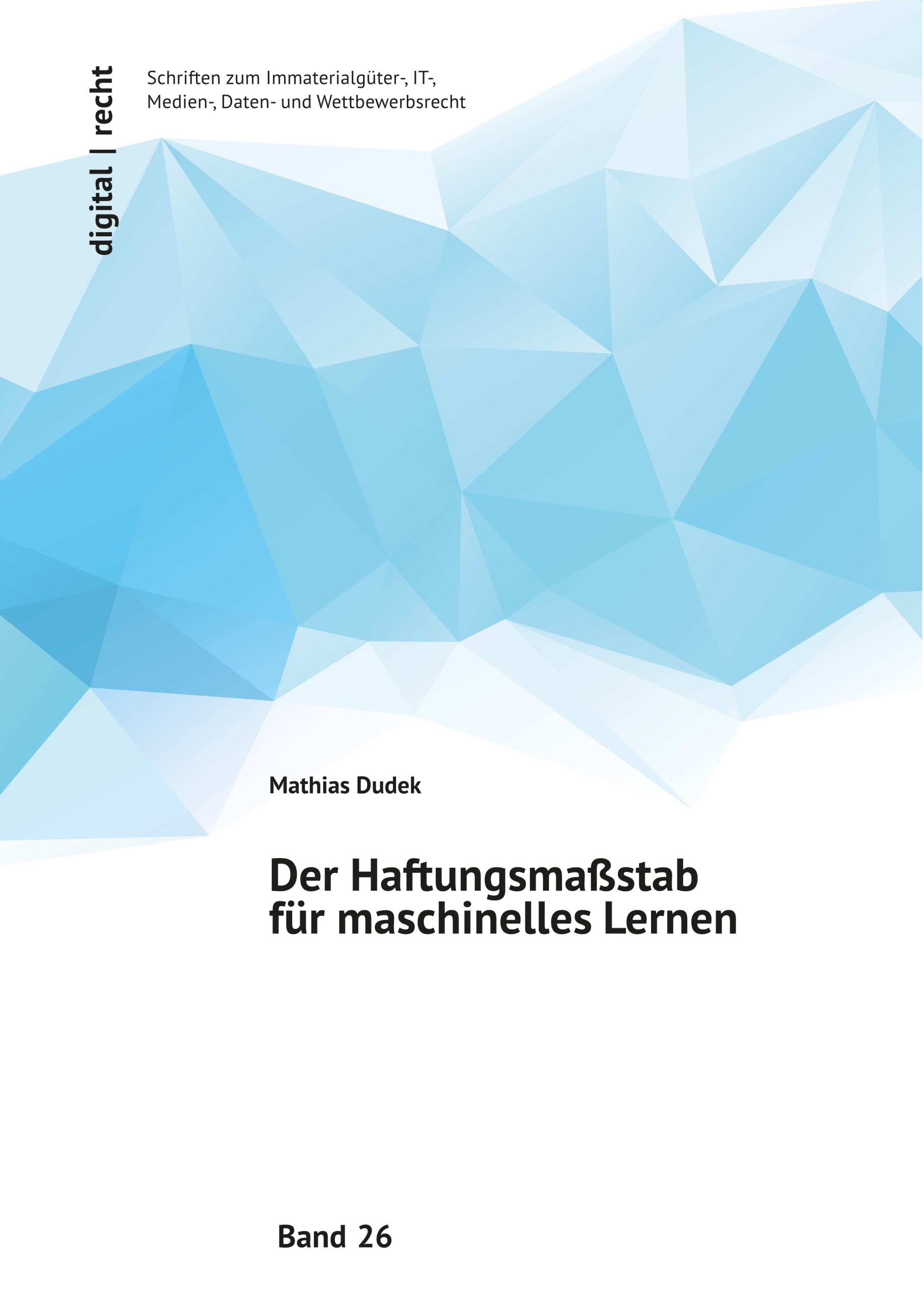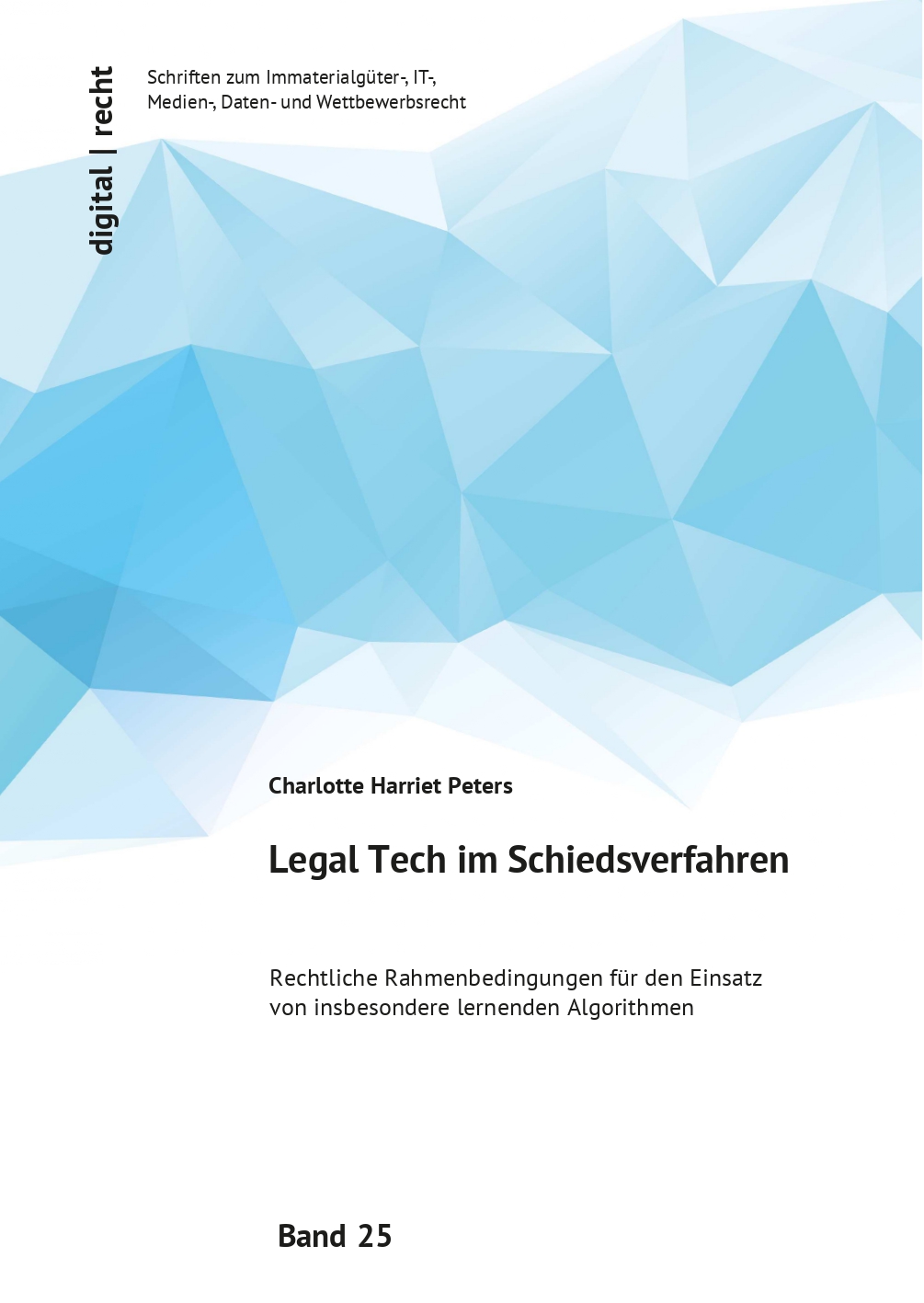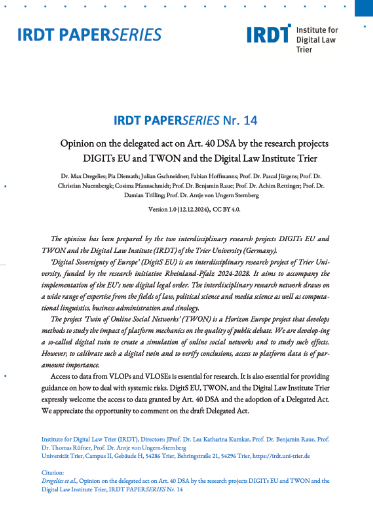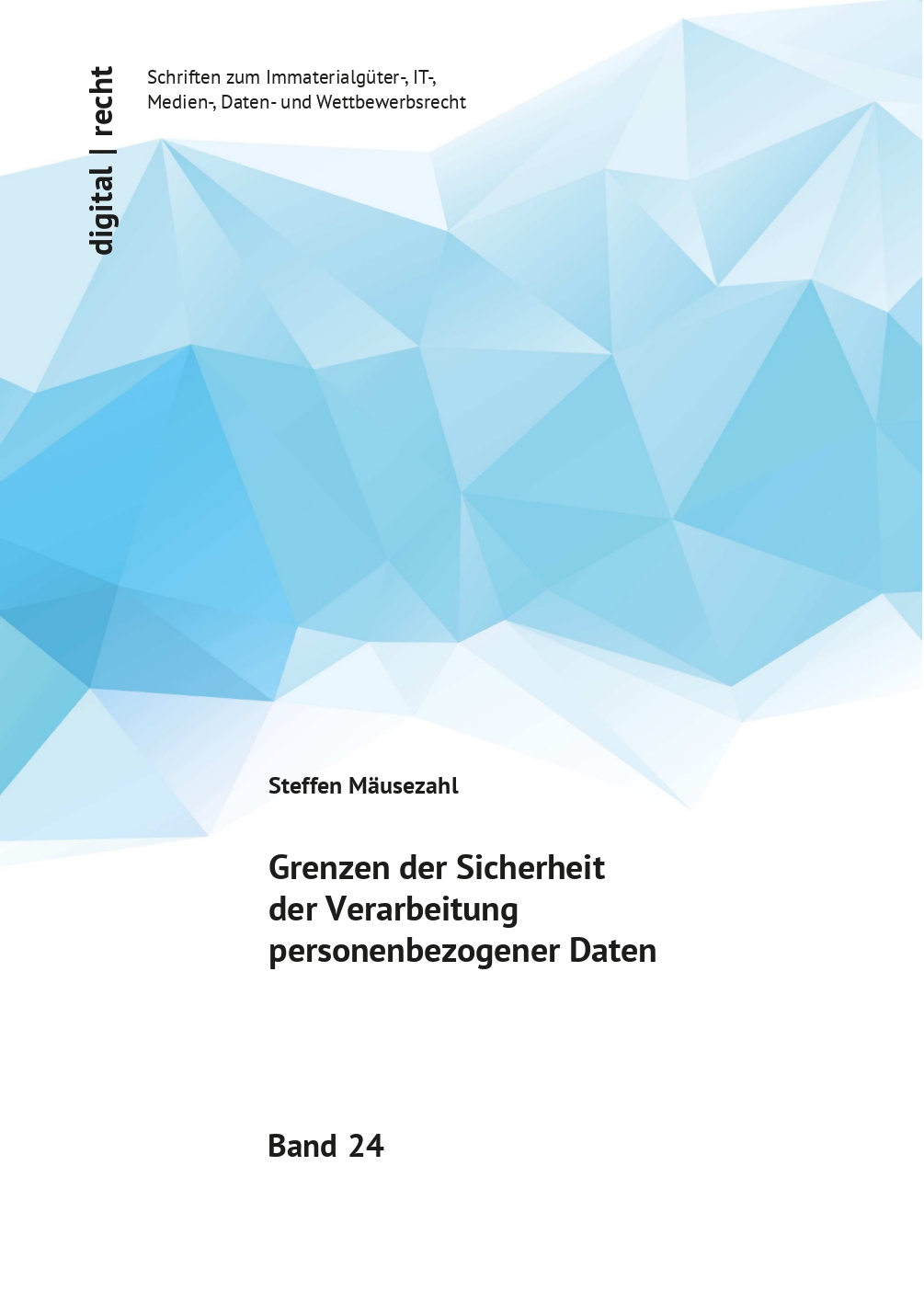Publications
Die Offenlegung von Geheimnissen – Kriterien zur Bewertung der Veröffentlichung rechtswidrig erlangter Informationen im Zivilrecht
Geheimnisse erfüllen vielfältige Funktionen für Individuum und Gesellschaft und werden durch unterschiedliche rechtliche Schutzregime gesichert. Ihre Verwundbarkeit ergibt sich daraus, dass das für den rechtlichen Schutz essenzielle faktische Geheimsein gegen den Willen des Geheimnisinhabers aufgehoben werden kann.
Jüngels entwickelt auf Grundlage der Rechtsprechung des EGMR, des EuGH und nationaler Gerichte sowie einschlägiger Normen zum Schutz von Geheimnissen und Vertraulichkeit einheitliche Bewertungskriterien, die bestehende Konflikte unter Berücksichtigung von Synergieeffekten auflösen. Im Zentrum steht dabei das Kriterium der Art der Erlangung des Geheimnisses, das eine differenzierte Abwägung der beteiligten Interessen ermöglicht. Eine einheitliche Anwendung dieser Kriterien schafft Rechtssicherheit für Medien, Geheimnisinhaber, Hinweisgeber und die Öffentlichkeit schaffen und schließt Lücken des Geheimnisrechts.
Regulating AI: A technology law perspective on regulatory strategies for emerging technologies
This thesis examines regulatory strategies for AI technologies. The first part illuminates the fundamentals of artificial intelligence – from its historical development through technical functionalities to practical application fields. AI is understood as a multidisciplinary phenomenon characterised by a variety of technical approaches, lacking a uniform definition and finding application in nearly all areas of life.
Medizinische Fehlinformationen in den sozialen Medien
Die Arbeit untersucht das Phänomen der Verbreitung medizinischer Fehlinformationen in den sozialen Medien aus juristischer Perspektive. Ausgangspunkt ist die Entwicklung eines Begriffsverständnisses, das medizinische Fehlinformationen von anderen Informationen abgrenzt. Darauf aufbauend wird die besondere Verbreitung solcher Inhalte über die sozialen Medien und deren Risiken für die öffentliche Gesundheit analysiert. Anschließend steht die rechtliche Verantwortung von Plattformbetreibern im Fokus. Im Ergebnis bieten die bestehenden Normen kaum effektive Ansätze, um die Verbreitung von medizinischen Fehlinformationen einzudämmen. Die Arbeit entwickelt deshalb einen Vorschlag für eine unionsweite Regulierung, die medizinische Fehlinformationen als systemisches Risiko anerkennt und Plattformen stärker in die Pflicht nimmt.
Die datenschutzrechtliche Zulässigkeit der Registermodernisierung
Die Verwaltung braucht Daten, um ihre Aufgaben erfüllen zu können. Diese Daten sollen Bürger und Bürgerinnen perspektivisch nur noch ein einziges Mal bei einer öffentlichen Stelle angeben müssen. Damit dies gelingen kann, müssen Behörden auf die Datensätze anderer Behörden zurückgreifen können. Hier setzt die Registermodernisierung an. Mit ihr wird eine Identifikationsnummer eingeführt, die die eindeutige Zuordnung eines Datensatzes zu einer natürlichen Person ermöglicht und dadurch den behördlichen Datenaustausch erheblich vereinfacht. Die Einführung der Identifikationsnummer ist auf datenschutzrechtliche Bedenken gestoßen, insbesondere wird die Bildung von Persönlichkeitsprofilen befürchtet. Aus diesem Grund untersucht die Arbeit die datenschutzrechtliche Zulässigkeit der Registermodernisierung.
Artificial Intelligence and Fundamental Rights: The AI Act of the European Union and its implications for global technology regulation
Band 4 unserer Open Access Schriftenreihe "Schriften des IRDT" ist erschienen.
IRDT Tätigkeitsbericht 2024/25
Das Institut für Recht und Digitalisierung Trier feiert dieses Jahr sein fünfjähriges Jubiläum. In den letzten Jahren hat das IRDT durch seine Forschungsprojekte, Publikationen und Veranstaltungen sichtbare Bei-träge zur rechtswissenschaftlichen Diskussion geleistet. Hierdurch konnte sich das IRDT im deutschsprachigen Raum und zunehmend auch international als Forschungsinstitut etablieren. [...]
Der Haftungsmaßstab für maschinelles Lernen
Eine der wesentlichen Entscheidungen zur Verteilung der Schadenslast im Falle der Schädigung durch Systeme der künstlichen Intelligenz oder des maschinellen Lernens ist diejenige über den Haftungsmaßstab. Die Arbeit untersucht zunächst abstrakt den an das Verschuldensprinzip anknüpfenden Haftungsmaßstab des § 823 Abs. 1 BGB und den passenden Anwendungsbereich der Gefährdungshaftung. Die daraus gewonnenen Erkenntnisse werden anschließend auf die Fälle der Schädigung durch Systeme des maschinellen Lernens übertragen.
Legal Tech im Schiedsverfahren
Die Dissertation untersucht die Einsatzmöglichkeiten und Grenzen algorithmischer Systeme im Schiedsverfahren aus verfahrensrechtlicher Perspektive, insbesondere den Vorschriften der Zivilprozessordnung zum Schiedsverfahren. Ein besonderer Fokus liegt auf lernenden Algorithmen. [...]
Prof. Dr. Raue im Interview mit dem Trierischen Volksfreund
Medien, Populismus und die Rolle des Digital Services Act - Wie spielen Medien den Rechtspopulisten in die Hände? Und welche Rolle spielt Elon Musks Strategie dabei? [...]
Opinion on the delegated act on Art. 40 DSA by the research projects DIGITs EU and TWON and the Digital Law Institute Trier
The opinion has been prepared by the two interdisciplinary research projects DIGITs EU and TWON and the Digital Law Institute (IRDT) of the Trier University (Germany). [...]
Grenzen der Sicherheit der Verarbeitung personenbezogener Daten
Art. 32 DS-GVO verlangt die Implementierung technischer und organisatorischer Maßnahmen (TOM), um ein angemessenes Schutzniveau für die Sicherheit der Verarbeitung zu gewährleisten. Verarbeiten diese TOM allerdings selbst personenbezogene Daten („datenverarbeitende TOM“), unterliegen sie ihrerseits den Anforderungen der DS-GVO und bedürfen u.a. einer Rechtsgrundlage nach Art. 6 DS-GVO [...]


